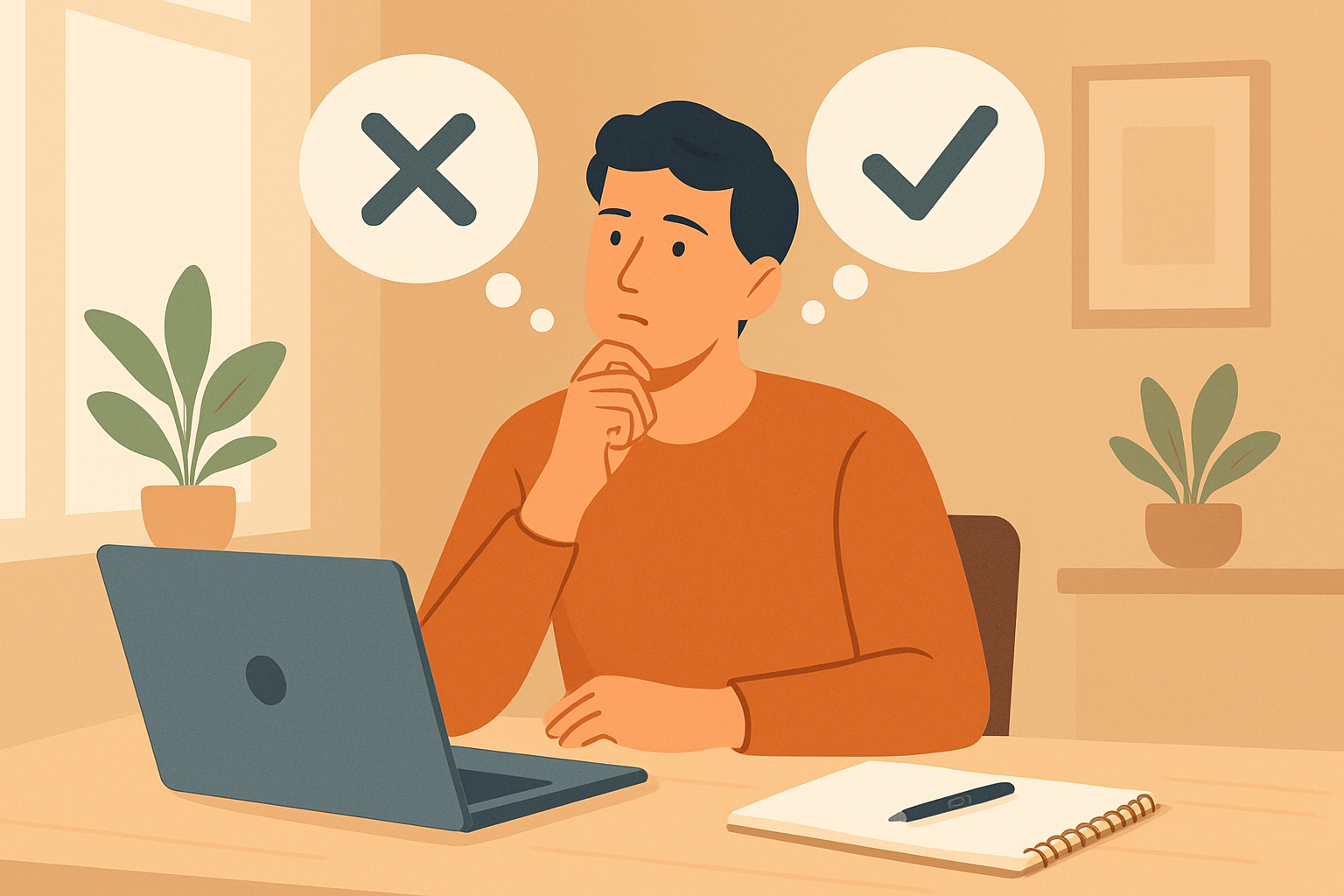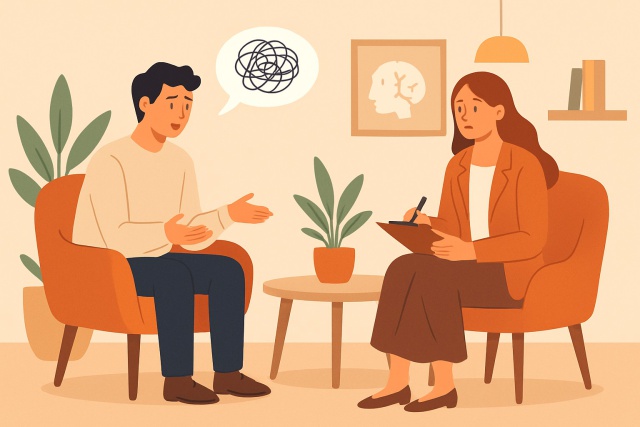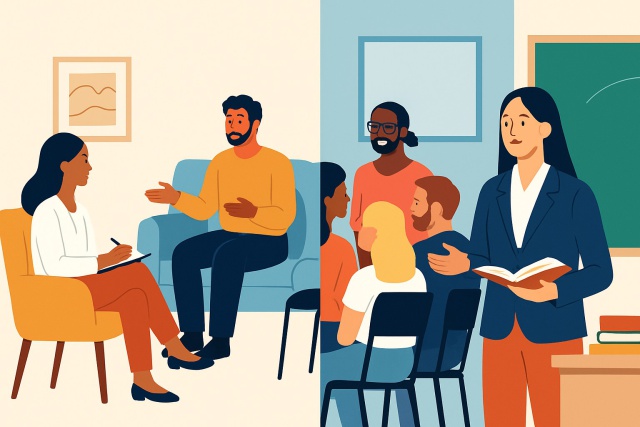Taking care of your mental health can sometimes feel like juggling a few too many balls at once. People often wonder if therapy might be the right move for them. Figuring this out usually means tuning in to how you’re really feeling, spotting the tricky parts of life that keep tripping you up.
What Therapy Is Really About and Why It Truly Matters
Therapy is really about teaming up with a trained mental health professional who’s there to support and boost your emotional well-being. There are plenty of different types of therapy out there, each designed to address specific concerns.
- Cognitive Behavioral Therapy (CBT) helps individuals spot and gently nudge those pesky negative thoughts and behaviors aside.
- Psychodynamic Therapy dives into the hidden corners of the mind and explores unconscious patterns and past experiences that shape how we feel today.
- Humanistic Therapy cheers on personal growth and nurtures self-acceptance like a supportive coach rooting for you every step of the way.
- Group Therapy offers a welcoming space where shared stories and peer support come together under the careful guidance of a professional.
- Online Therapy brings flexibility to the table, letting you connect from your favorite comfy chair through video or chat sessions—therapy that fits your life, not the other way around.
When Therapy Could Be Helpful (Because Sometimes We All Need a Little Extra Support)
Knowing when to reach out for therapy isn’t always a walk in the park, but there are some telltale signs that suggest professional support might be just the ticket.
- Feeling down or anxious for weeks on end without a break.
- Struggling to stay on top of everyday tasks like work, school or chores.
- Navigating ongoing troubles or tensions in your personal relationships that won’t quit.
- Carrying the weight of trauma or grief that sits heavy on your chest.
- Feeling stuck emotionally or mentally like you’re trapped in quicksand and can’t move forward.
- Facing dark thoughts like self-harm, suicide or other risky behaviors that can’t be ignored.
"Seeking therapy isn’t a sign of weakness at all. In fact, it’s a brave move toward truly getting to know yourself and strengthening your inner resilience," — Dr. Emily Harper, Clinical Psychologist
Figuring Out If Therapy Might Just Be the Right Move for You
Choosing therapy means taking a good honest look at your mental health and figuring out what you really want to get from it. It also means seeing how it fits into the messy puzzle of your daily life.
- Take a good honest look at your emotional state and jot down any recurring issues or patterns that throw you off balance.
- Think about whether tweaking your lifestyle or diving into a few well-chosen books really addresses what is bothering you.
- Explore the different types of therapy available and see which ones match your personality or struggles.
- Lean on trusted friends, family members or healthcare pros for guidance or a supportive ear.
- Consider practical aspects like your budget, insurance coverage and how much time you can realistically set aside for sessions.
- Book a trial session because it is a low-pressure way to get a feel for therapy before you commit long term.
Finding the Right Therapist for Your Mental Health Needs
Finding a therapist who really clicks with your needs and personality is a huge part of making therapy actually work. There are quite a few ways to dig into your options and reach out to professionals.
- Double-check the therapist's qualifications and specialties to ensure they match what you need.
- Look for reviews or personal recommendations to get a true sense of their reputation and client satisfaction.
- Find out about the therapy methods they use and if your sessions will be face-to-face or online.
- Be clear about the costs and payment options and if they accept your insurance.
- Notice how comfortable you feel and how smoothly the conversation flows during your first session because finding the right connection is key.
Other Ways to Support Mental Health Alongside Traditional Approaches That Might Just Surprise You
A lot of people discover that bringing in some extra tools to support their mental health really does the trick—whether it’s alongside the usual therapy sessions or as a stand-in.
- Practicing mindfulness and meditation to stay grounded and ease stress we all get from time to time.
- Getting regular physical exercise that lifts your spirits and boosts your overall health.
- Joining peer support groups where people share stories and offer a comforting sense of understanding.
- Using self-help books and mobile apps that teach practical coping skills and track your progress.
- Improving lifestyle habits by focusing on good sleep, balanced nutrition, and handling stress like a pro.
- Having open conversations with trusted friends or family to provide emotional support and a fresh perspective when things get overwhelming.
What to Expect During Your First Therapy Session (Spoiler: It’s Not as Scary as You Might Think)
That very first therapy session often sets the tone for your entire journey ahead.
- The therapist will introduce themselves and explain confidentiality. They will gladly answer any questions you have about how therapy works.
- You will dive into the challenges you are facing and share how you’re feeling on the inside. You will also talk about what led you to seek therapy.
- Together, you’ll start setting some goals and sketch out what to expect during your sessions—kind of like mapping your journey.
- The therapist will address any lingering questions or concerns about the treatment to make sure you feel comfortable moving forward.
- Finally, you’ll schedule future sessions and discuss the next steps so you’re both on the same page moving ahead.





